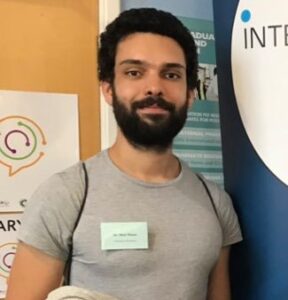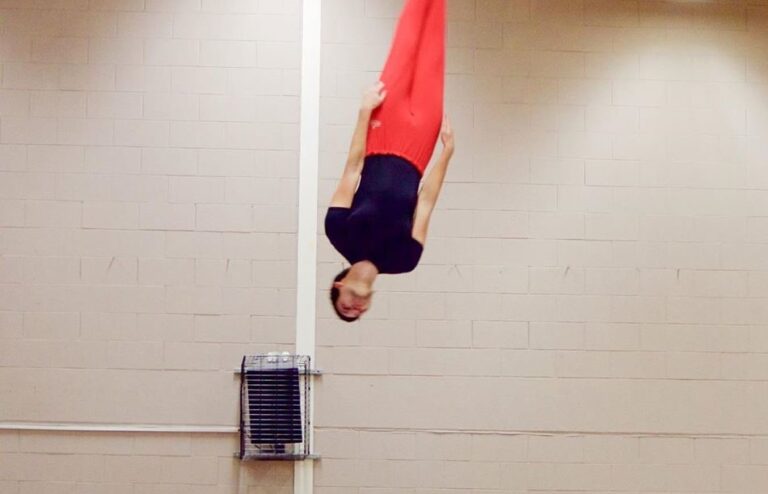Meet the Department: Dr Nick Weise
Meet the Department 26 November 2019
What is your name and academic background?
Nick Weise, Lecturer
Please can you describe your research, for the layman, in ten sentences or fewer?
My research interests lie where the fields of chemistry and biology meet. Over the past few years I have been working with enzymes, which are present in all living organisms and allow them to perform the chemical reactions they need to survive. Enzymes are very interesting, they can help chemical transformations take place inside an organism that might normally require extreme temperature, harsh conditions and toxic reagents if a chemist were to perform them. Enzymes, however, are usually benign, can be renewably-resourced and often produce much less environmentally-damaging waste when used than traditional chemical catalytic processes. There are many researchers working on various enzymes at the Manchester Institute of Biotechnology (where I am based) as part of the university’s Industrial Biotechnology Research Beacon. The overall aim of this collaborative work is to help the chemical industry move towards greener and more sustainable methods to make the drugs, fine chemicals, materials and fuels needed by our ever growing global population.
What do you teach at the university?
I am involved in many different forms of teaching and learning support in different areas of the university. I lecture on Industrial Biotechnology to chemistry students as part of an optional unit called ‘Contemporary Themes in Chemistry’ and also teach biological science students chemistry. My lectures are very non-traditional as I barely do any talking at the students, instead encouraging them to discuss the content they have learnt in their own time, find their own weaknesses, learn from mistakes and receive relevant feedback from me. I also run tutorials for core organic chemistry units and support the peer-assisted study sessions run by higher year students in the department. I am also involved in the training of graduate teaching assistants as well as new lecturers and research fellows to support them in their own teaching and enable them to share teaching excellence and apply for nationally recognised-accreditation as higher education professionals.
Outside of your research and teaching, how else do you get involved with the University?
I am a member of the University of Manchester Trampoline Club and have competed at inter-university and national competitions; I am a volunteer coach for the club and am acting as their Welfare Officer for the academic year 2019/20. I also live in Denmark Road Halls of Residence (a university-leased accommodation block) as a member of the Residential Life Team. The team is made up of a small number of staff and postgraduate students in each hall, who are on hand as a point of contact to support residents and look after their social, academic and general wellbeing – we deal with anything from simple queries all the way up to a mental health crisis.
What do you enjoy most about Manchester as a city?
Coming from London, for me Manchester seems very small, which I like. Being a city it still has everything you could need in terms of amenities, entertainment, etc. and you rarely have to go far for anything. Living on campus is also really great as it is short walk to the city centre (and an even shorter walk to work in the morning!)
What would you say to people considering coming to The University of Manchester to study?
Make sure you pick a place to live that works for you. Living in university-leased accommodation myself, I come across residents who move into or out of my halls of residence part way through the year because they initially chose a place that did not suit them. For those looking for a vibrant, social student experience, I would recommend the halls of residence down in Fallowfield. It is a short bus ride away from campus, but surrounded by a busy student village and all the halls are located together, giving a nice community feel. For those looking for something quieter, a short walk from lectures and close to the learning facilities, city campus halls of residence can provide a more focused environment for studying.
You should also consider whether you want a more traditional hall, perhaps with catering included such that you can all have breakfast and an evening meal together to get to know everyone, or something more modern with communal facilities where you can cook for yourself. Of course, each hall has its own character, but it depends on who you live with and what the student cohort is like that year.
And outside university… what do you get up to in your spare time?
I am a member of the Manchester Wind Orchestra, playing the clarinet at weekly rehearsals and concerts a few times a year.
AccommodationMeet the DepartmentMIBNick WeiseResidential life






Leave a Reply